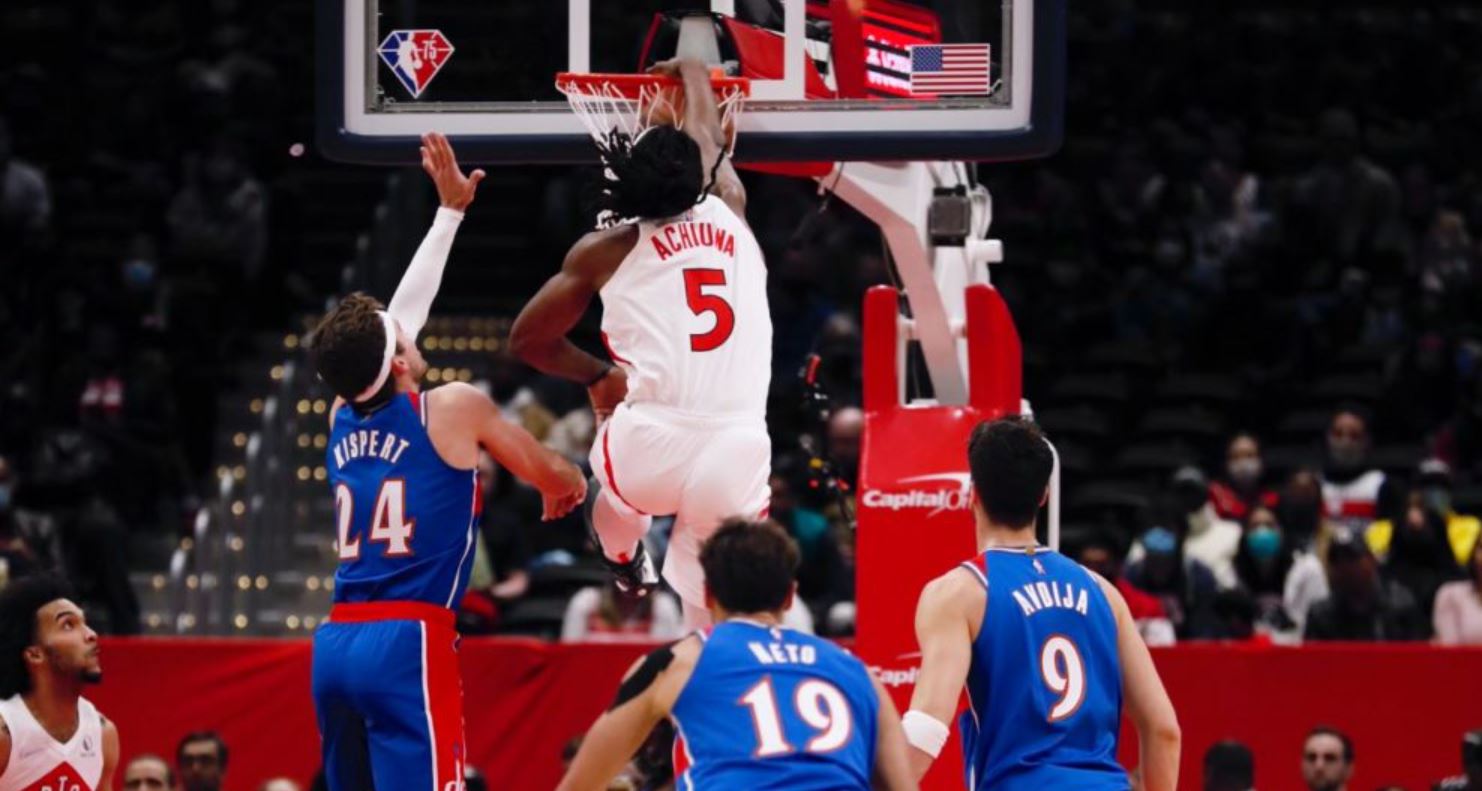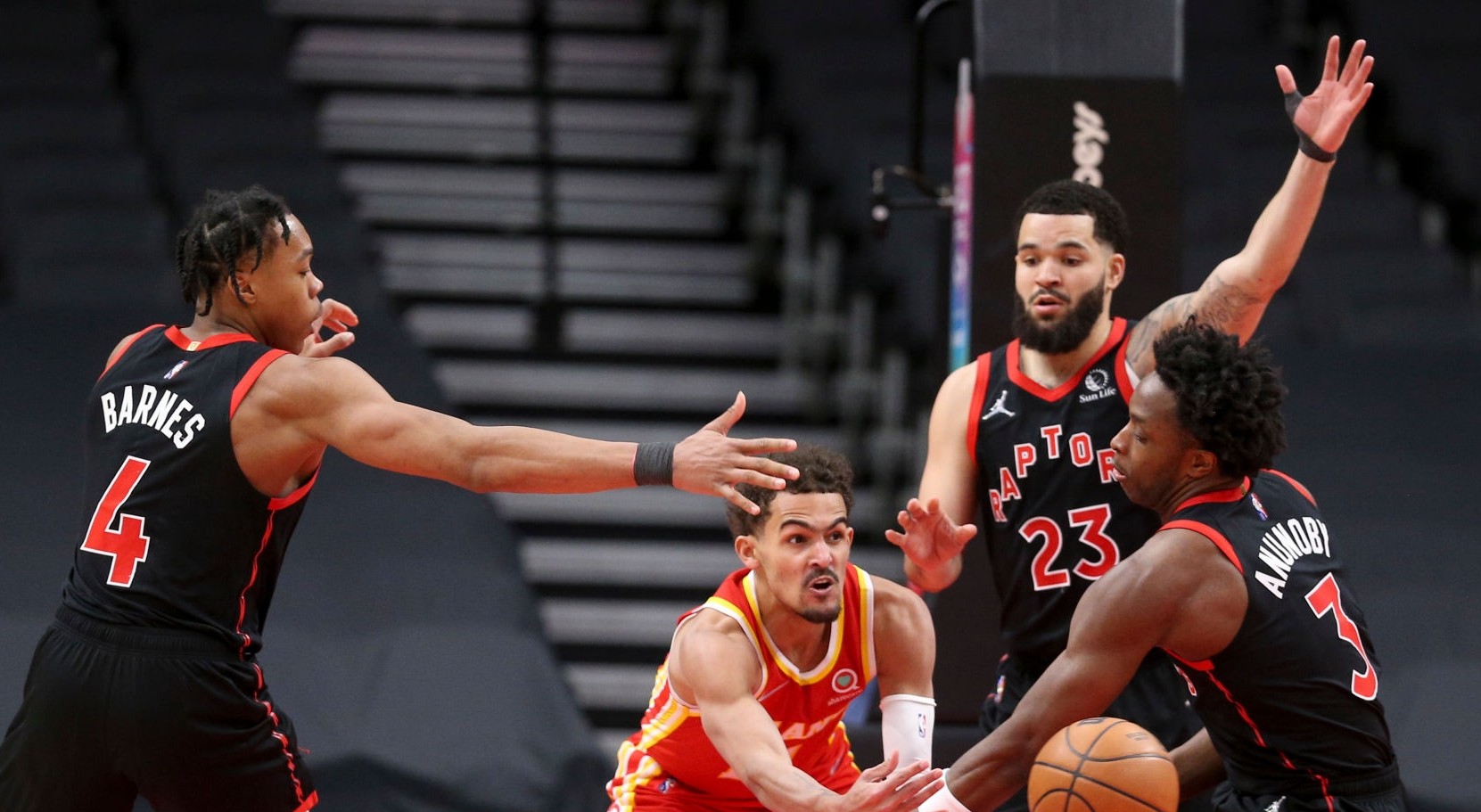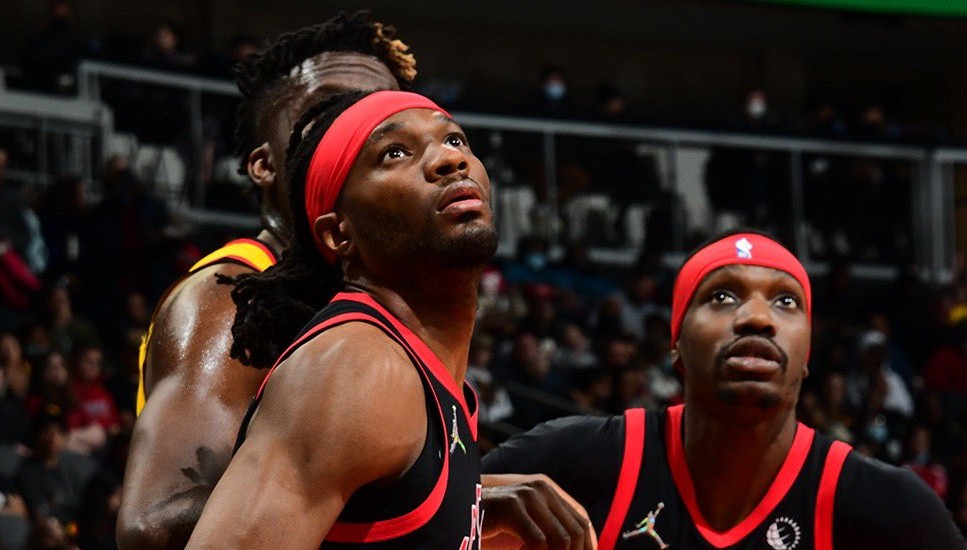Some losses are painful, raw — ripping off chunks of your sanity and flesh both with their intimate connection to your soul. Think Game 1 against the Cleveland Cavaliers in 2018. Others matter very little. Okay, the Raptors lost to the Charlotte Hornets, and they lost big. So? We know this team can play defense, even though they didn’t. We know Pascal Siakam and Fred VanVleet are offensive dynamos, even though they weren’t. So much of writing about sports is about trying to explain things that aren’t obvious or else to predict what’s going to happen.
Toronto’s loss to Charlotte was neither subtle nor predictive. So, barring this becoming a trend — in which case we need to look back here and see what the heck happened that infected the Raptors and made them change right down to the core of their team — we need to look deeper to find something interesting to talk about.
Enter Precious Achiuwa. Even on the surface level, he had an interesting game for Toronto. He had the best plus-minus among non-garbage time players, at minus-six. He was third on the team in scoring! (With, to be fair, nine points. Ha. It was a bad game.)
Guest writer Orri Bogdan recently penned poetic about Achiuwa’s big-picture fit with the Raptors. He triangulated Achiuwa between Aron Baynes, Bam Adebayo, and Pascal Siakam. He wrote this:
The truth is that Precious isn’t perfect, but the type of player he represents is. What he could be in a year or two’s time could be the perfect fit for a Raptors’ franchise now fighting for title contention. Not because of what he is or how he’s performed, but because of the untapped potential.
It’s clear the Raptors are building a unique but fragile ecosystem on the basketball court. (OG Anunoby may be the same size as seven other players in the rotation, but his loss catalyzed a catastrophic loss on the court. That’s fragility.) Thad Young spoke after the Charlotte loss about how difficult the Raptors’ system is to learn:
“I think the biggest thing with learning this system is it’s a lot of interchangeable pieces so you’ve got to learn multiple positions as opposed to learning one or two positions. Now I have to learn the one through five. Because sometimes I might push the break, sometimes I might line up on the wing. Sometimes I might come from the post.”
That’s revealing because Toronto tries to milk advantages from its players who can perform unique-for-their-position skills. Fred VanVleet is an elite screener. Toronto’s three-headed hydra of wings — Anunoby, Pascal Siakam, and Scottie Barnes — are all elite post players. To tie a clean bow around the everyone-does-everything offense, Toronto’s bigs should be elite shooters and drivers against rotations. That’s where Achiuwa comes into play.
He is a passable shooter more in theory than practice. He shot zero for two from deep against the Hornets and three for seven from the line. (Those seven attempts, by the way, represent the tied-second highest number of his career.) But his stroke is fluid, and he is starting to limit his threes to the corner. He can realistically stretch the floor from there. But his best play against Charlotte started in the corner yet didn’t result in a jumper. He caught the ball and drove, taking a looping route almost away from the rim, more towards the free throw line. But then the spirit of Siakam flew into Achiuwa’s form as he angled, pivoted, and rocketed back towards the corner in a devilish spin that brought him uncontested to the rim.
Or at another point, Fred VanVleet drove and found nothing but a wall of arms in his way. He looked first to throw a reset pass above the arc, but then Achiuwa flashed to the free throw line, took the pass, and made a little push shot. (Not in any way, shape, or form spectacular! But solid. Achiuwa has too rarely been solid on the offensive end.)
Those two plays represent the whisper of Achiuwa’s future breathing life into his frequently too-loud present. He can space the floor in the corners, attack rotations and reach the rim a la Siakam, and hunt open space like all useful centers on offense. Those aren’t potential; those are things he can do right now. Of course, he needs to do them consistently, etcetera. But they’re positive offensive skills. Ways to contribute.
We already know Achiuwa is an elite defender. The more playable he becomes on the offensive end, the more his future becomes Toronto’s present. Yes, he is full of untapped potential. But it’s his tapped potential that interests Toronto right now. Even though the Raptors received a plastering last night, they still took a baby step forward in an important area.



